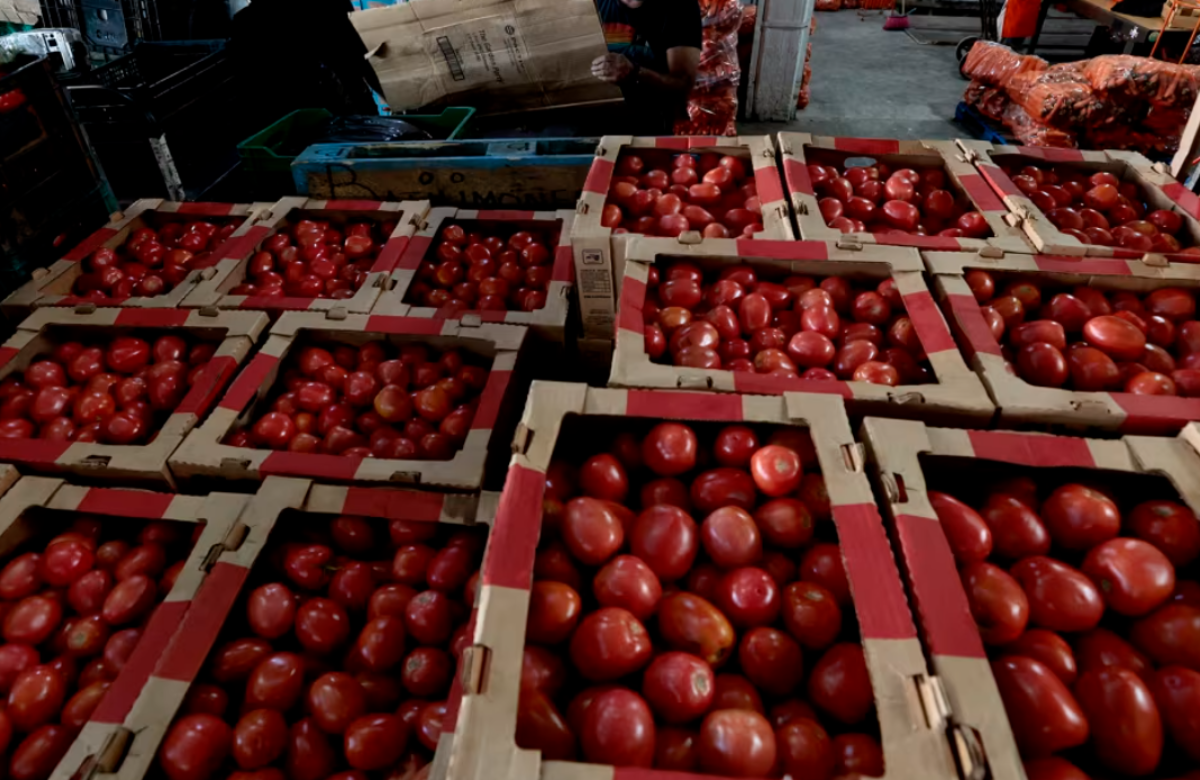Tomato prices could soar due to new tariffs on Mexican-grown produce, threatening small businesses like Teresa Razo’s restaurants in Southern California. Razo, who owns two Argentine-Italian eateries, warns that if prices rise sharply, her businesses might go bankrupt within three months.
Starting July 14, a nearly 30-year-old trade agreement between the US and Mexico is set to end, leading to a 20.9% tariff on most Mexican tomato imports. This change could push up tomato prices in grocery stores and restaurants nationwide, potentially forcing some small businesses to close.
The tariffs are part of President Donald Trump’s broader, unpredictable trade policies, which have disrupted global markets and created uncertainty for businesses and consumers. Currently, field-grown tomatoes cost about $1.70 per pound, but experts predict a 10% price increase and a 5% drop in demand due to the tariffs.
The US is the largest market for Mexican tomato exports. The Department of Agriculture’s June report predicts that these tariffs will reduce imports and raise prices. Some American growers support the tariffs, arguing they are necessary to combat “dumping,” where Mexican tomatoes are sold at artificially low prices to undercut domestic producers.
The Tomato Suspension Agreement, in place since 1996, has set limits on Mexican tomato imports, but the Commerce Department withdrew from it in April, claiming it failed to protect US farmers from unfairly priced imports. This decision will activate the new tariffs.
Robert Guenther, representing Florida tomato growers, stated that multiple agreements have failed to stop unfair Mexican imports, and the current trade deal has hurt US farmers. However, Mexican grower Walberto Solorio disputes this, calling the issue more political than economic. He says that, overall, Mexican producers have complied with the agreement.
Consumers and businesses are already feeling the impact. Razo says diners who ate out three times a week may reduce visits due to increased prices, as tomatoes are essential for many dishes in her restaurants. While some companies like Heinz and DiGiornio use only US-grown tomatoes, smaller businesses such as Appollonia’s Pizza in Los Angeles might absorb the higher costs rather than raising prices.
Razo is trying to switch to domestic tomatoes but worries about supply shortages. Due to unpredictable tariff changes, she’s been following news updates less frequently to protect her mental health, calling the situation “instability” and “fear.”
American growers claim they can produce enough tomatoes year-round thanks to advances in technology and regional diversity, and that Mexican producers can still export if they follow trade laws. Meanwhile, Mexican growers emphasize their compliance with audits, pricing rules, and inspections.
Justin De Leon of Appollonia’s says his pizzeria uses Mexican tomatoes for fresh toppings but relies on California tomatoes for sauce, switching suppliers seasonally to ensure quality. He notes that tariffs on other ingredients like cheese have already increased costs, adding more challenges to running a restaurant.
De Leon hopes the tariff situation will resolve soon to ease the pressure on small businesses.
Also Read:
Del Monte, a 139-Year-Old Canned Food Company, Files for Bankruptcy Protection
Ford doesn’t expect tariffs to cause significant price hikes for its cars














